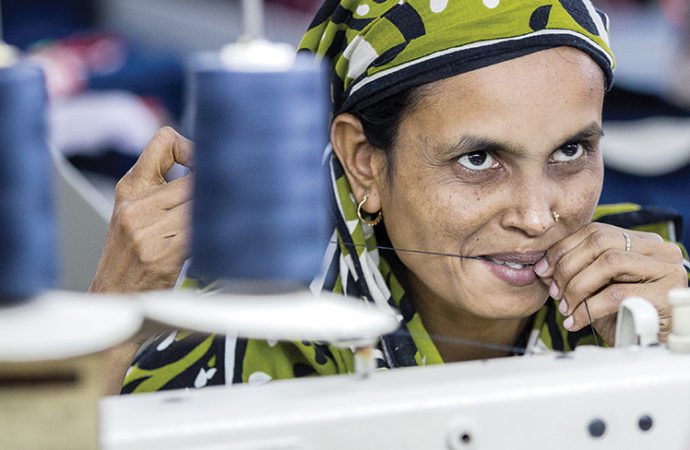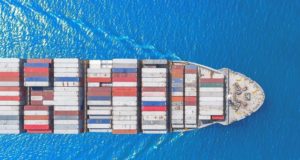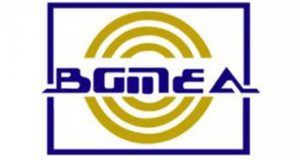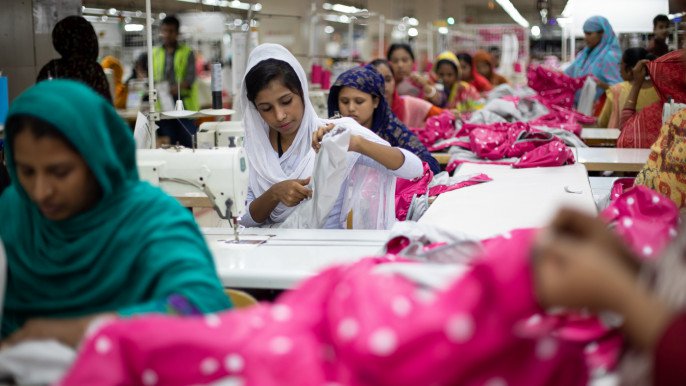Published in Dhaka Tribune on May 03, 2018

Photo: Rajib Dhar/ Dhaka Tribune
Bangladesh, the second largest exporter of apparel products, has outperformed China and India in ethical compliance in the apparel segment in terms of workplace safety in the aftermath of the Rana Plaza collapse. Global retailers started pressuring Bangladesh to make safety improvements after the incident, a survey said.
“A look at ethical performance by region indicates little change for Chinese manufacturers, with average scores flat at 7.7 out of 10. By contrast, South and Southeast Asia are showing some much-needed improvement,” said Asianinspection (AI) in its first quarterly report of 2018.
AI is a quality control and compliance company that performs product inspections, supplier audit programs, and laboratory testing in Asia, Africa, Europe, North America, and South America. Its headquarters are located in Hong Kong.
In particular, ethical scores in Bangladesh rose by an average of 15% during the past 12 months, said the survey.
This is likely reflecting the continuous pressure on Bangladesh to improve textile and apparel manufacturers by the industry groups formed after the 2013 Rana Plaza collapse, the finding showed.
After the Rana Plaza disaster, “Accord on Fire and Building Safety in Bangladesh” and “Alliance for Bangladesh Worker Safety” were formed to improve safety in the country’s apparel industry.
As of now, Alliance has completed nearly 90% remediation works, while the Accord has done 83% remediation. These two platforms are very close to ending the safety inspection by the end of June this year.
The survey by AI “Q2 2018 Barometer: China Unfazed by Global Trade Stand-Off, Supply Chains Face New Ethical Concerns” was released last month.

2015-2018 Average Audit Scores Asianinspection
Nevertheless, AI data shows that factories are still plagued by health and safety issues, which were ranked the most pressing concern of Q1 2018, taking over working hours and wage compliance. Factory scores for health and safety are roughly 9% behind the aggregated average.
Growth remains robust in Southeast Asia, with Cambodia continuing to outpace its economic forecast for the second year running, the survey added.
Pakistan also maintains momentum gained during last year, with inspection volumes expanding 10.3% year over year in Q1 2018.
Ethical scores by industry remain disparate, with home ware in the lead (average scores of 8.3/10), and compliance in the body care and accessories sector continuing last year’s downward trend, the survey findings showed.
Meanwhile, audit scores of textile and apparel manufacturers have been rising since mid-2017, indicating that long-term improvement efforts may be finally bearing fruit, it added.
According to the survey, the sourcing outside of Asia maintains an upward trajectory, reflecting the ever-increasing diversification of sourcing patterns.
The Latin American region serves as a prime example, with first-quarter demand for inspections and audits increasing 26% year on year.

2015-2018 Inspection Reports Beyond AQL % Asianinspection
Despite better ethical compliance in 2018, safety and environmental issues abound in global supply chains.
The survey also found a strong demand for environmental audits, especially in China where brands and manufacturers struggle to comply with the new anti-pollution laws.
Pollution and waste management accounted for over 80% of non-compliances found by AI in Q1 2018, with over two-thirds of them classified as major, it added.
This is consistent with the field data of AI structural safety audits, which indicate the percentage of factories at immediate risk, is steadily inching upwards.
In Q1 2018, some 23% of products failed in-factory inspection, leading to a 7% increase in quality failures – not surprising, considering that factories traditionally struggle with labor shortages around the Chinese New Year and may be forced to cut corners to meet delivery schedules.
 CPD RMG Study Stitching a better future for Bangladesh
CPD RMG Study Stitching a better future for Bangladesh



